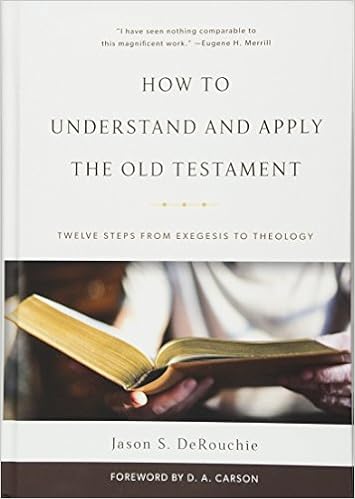
For the Church has initiated their blogs summarizing portions from my book, How to Understand and Apply the Old Testament. Following the introductory post, part 1 summarizes step one in the exegetical process––Genre. Understanding genre is critical for rightly understanding the Bible’s message. As I explain in this blog article:
When assessing genre, the goal is to determine the literary form, subject matter, and function of your focus passage, to compare it to similar genres, and to consider the implications for interpretation. Genre refers to an identifiable category of literary composition that usually demands its own exegetical rules. In addition, different genres have different functions, with some existing to convey information or stir thoughts (e.g., laws and historical narratives) and others affecting and effecting certain behaviors, beliefs, and feelings (e.g., psalms and love songs). Accordingly, a misunderstanding of a work’s genre can lead to skewed interpretation. Our decisions at this point will color the rest of the interpretive process.
To read more from the article on Genre, click here.
Part 2 summarizes step two of the journey from exegesis to theology––Literary Units and Text Hierarchy. Defining a text’s boundaries and distinguishing the primary from the supporting material is essential to rightly understanding a passage. I note in the blog post:
The limits of the passage could be a quotation, a paragraph, a story, a song, or even an entire book. The process of establishing literary units is not random, for the biblical authors wrote with purpose, logic, and order, creating groupings and hierarchies of thought to guide understanding. As a biblical interpreter, consider whether there is a clear beginning and end to your passage. Are there clues in the content and/or the grammar that clarify a passage’s boundaries? If you are unsure what any of this means, this blog post will help you out. Determining the boundaries of a passage can help you lead a Bible study, plan a series of Bible studies, or plan a preaching series. Before you can do any of these things, you have to know where to start and where to end.
For the whole article on Literary Units and Text Hierarchy, click here.





